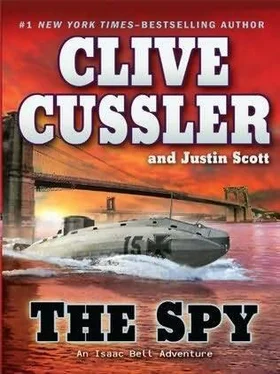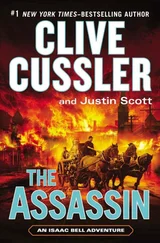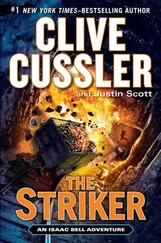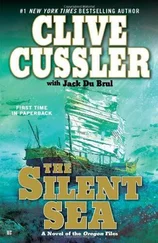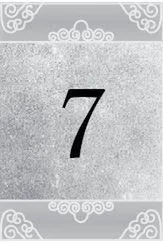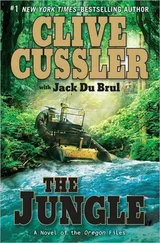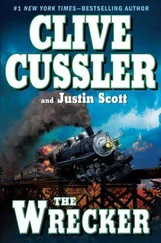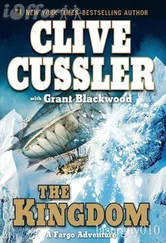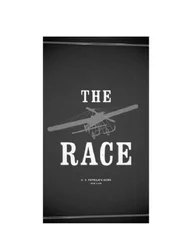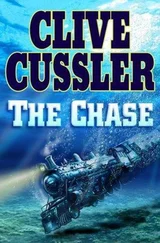“And you’re sure the explosion wasn’t an accident?”
“I talked to the Navy-found an Annapolis man I knew at prep school. Our specialist confirmed. Riley from Boston, you know him. There is no doubt.”
“They are the Holy Grail of torpedoes,” Bell said, grimly. “Fast, long-range, silent propulsion married to immensely more powerful warheads.”
“The spy got the best. The only good news is that Wheeler can make more of them. The English are livid. They won’t sell us any more, but I learned that Ron Wheeler and his boys already started making unauthorized copies for the Navy. In the meantime, the spy got himself the latest British propulsion armed with the latest American warheads-priceless secrets to sell to the highest bidder.”
“Or deadly weapons to attack.”
“Attack? How would he fire them?” asked Archie. “Even a spy as cunning as this one can’t get his hands on a battleship.”
Isaac Bell said, “I would not put it past him to acquire a small torpedo boat.”
The old friends locked gazes. The laughter fled Archie’s green eyes. Bell’s blue turned dark as stone. He and Joseph Van Dorn had already blanketed Captain Falconer’s key engineers with protection. And Van Dorn operatives had infiltrated the Brooklyn Navy Yard workforce. But they both knew that neither the arrest of the Chinese spy nor that of the head of the Gopher Gang would stop Eyes O’Shay. The spy would easily rebuild his fluid organization. And with the Great White Fleet beyond his reach at sea, he would resume his attacks on future American battleships.
“We better talk to Mr. Van Dorn.”
“What are you going to tell him?”
“We need manpower to track down those torpedoes. He’s got to convince the Navy, Coast Guard, and the police Harbor Squads in every city with a battleship yard-Camden, Philadelphia; Quincy, Fore River, Massachusetts; Bath Iron Works, Maine; Brooklyn-that the threat is deadly. Then I’m going repeat what I’ve been telling him all along. This is, first and foremost, a murder case. It will take old-fashioned detective work to hang Eyes O’Shay. We’ll start with Billy Collins.”

ISAAC BELL LEFT the Hotel Knickerbocker by the kitchen door. He dipped his fingers in a vat of used beef fat waiting to be picked up by the rendering plant and rubbed it into his hair. In the alley, down-on-their-luck men were waiting on the breadline. He astonished one, who despaired of raising a nickel to flop indoors on this chilly night that threatened rain, by offering five dollars for his battered slouch hat. Offered the same amount, a man almost as tall as the detective parted eagerly with his ragged coat.
Bell palmed a rusty revolver with three slugs in it and shifted it from his trousers into the coat. He pulled the hat low over his brow, worked his golden hair under it, and buttoned the coat to his chin. Then he shoved his hands in his pockets, bowed his head, and stepped out of the alley onto Broadway. A cop told him to move along.
For the fifth time in five days, he wandered Hell’s Kitchen.
He was learning its rhythms, where and when the slum blocks were busy, the streets rumbling with wagons and trucks, the sidewalks crowded, as men streamed into saloons, women into churches, and children roamed, ignoring mothers shouting from tenement windows. He had previously wandered from Ninth Avenue to the river and from the Pennsylvania Railroad Station construction site at 33rd to the 60th Street rail yards. But he hadn’t found the “hop fiend,” Billy Collins, who might lead him to Eyes O’Shay.
So today Isaac Bell was taking a different tack.
As part of his disguise, he limped, left foot dragging slightly, scuffing the shine off his boots as he crossed curbs and streetcar tracks. A coal truck backing to a cellar chute blocked the sidewalk. Bell trailed his fingers along its sooty side and stroked his mustache. He repeated the exercise when he passed an ash can, still warm, and ran his fingers through the hair that escaped from the slouch hat. He inspected his reflection in a window. His eyes glittered too brightly in a worn face. He cast his gaze downward, plucked a clump of straw out of the gutter, and rubbed it to his sleeves until it appeared that he had slept in his coat. They never look a dirty man in the face, Scully taught the apprentices.
He kept checking his image in windows, which, as he headed toward the river, got smaller and dirtier. He knelt beside an empty barrel standing in a puddle outside a saloon, pretended to tie his shoe, and continued on, his trousers smelling of stale beer. The deeper into the slum he wandered, the more slowly he walked, the lower he stooped-a weary, aimless man lost in the crowds.
A young tough wearing a tight suit and red derby blocked his path. “What do you got for me, Gramps? Come on! Hand it over.”
Isaac Bell resisted the impulse to floor him, dug deep in his coat, and surrendered a nickel.
The tough shoved past.
“Wait!” Bell called.
“What?” The tough spun around. “What? What do want?”
“Do you know a fellow named Billy Collins?”
The tough hung a blank expression on his face. “Who?” He was a kid, Bell realized, barely into his teens. An infant when Tommy Thompson and Billy Collins were running with Eyes O’Shay.
“Billy Collins. Tall, skinny fellow. Ginger hair. Maybe turning gray.”
“Never heard of him.”
“Skin and bones,” Bell said, repeating what Harry Warren and his boys had speculated the opium and morphine addict would look like after all these years. They knew he was still alive, or had been within the week. “Probably missing teeth.”
“Where you from, Gramps?”
“Chicago.”
“Yeah, well there’s a lot of guys around here got no teeth. You’re next.” He raised a bony fist. “Get out of here! Run, old man. Run.”
Bell said, “Billy Collins used to run with Tommy Thompson and Eyes O’Shay when they were kids.”
The thug backed up a step. “You with the Gophers?”
“I’m just looking for Billy Collins.”
“Yeah, well, you’re not the only one.” He hurried away, calling over his shoulder, “Everybody’s asking about him.”
They should be, Bell thought. Considering what it was costing the agency. In addition to Harry Warren’s boys and Harry’s informants, he had two hundred railroad cops asking the same question every time they slugged it out with Gophers attempting to rob freight cars. Bell kept asking himself, Where does a hop fiend hide? Where does he sleep? Where does he eat? Where does he get his dope? How come no one saw him in a district where everyone knew everyone?
There had been sightings near Collins’s known dens, several by a coal pocket that replenished locomotive tenders in the 38th Street yards, twice around an abandoned caboose at 60th Street. Picked men were watching both. And Bell had a feeling he himself had actually glimpsed Collins through a wind-spun swirl of locomotive smoke-a rail-thin figure had flitted between freight cars, and Bell had run full tilt after him only to find smoke.
Since then, the one man who might know where O’Shay disappeared to fifteen years ago hadn’t shown up at either den. On the plus side, they’d had enough reports to know he was alive, and he was unlikely to leave Hell’s Kitchen.
Eyes O’Shay’s location was another story. Everyone over the age of thirty had heard the name. No one had seen him in fifteen years. Some people had heard he was back. No one admitted to laying eyes on him. But Bell knew a man described by Tommy Thompson as “duded up like a Fifth Avenue swell” could sleep and eat anywhere he chose.
Читать дальше
